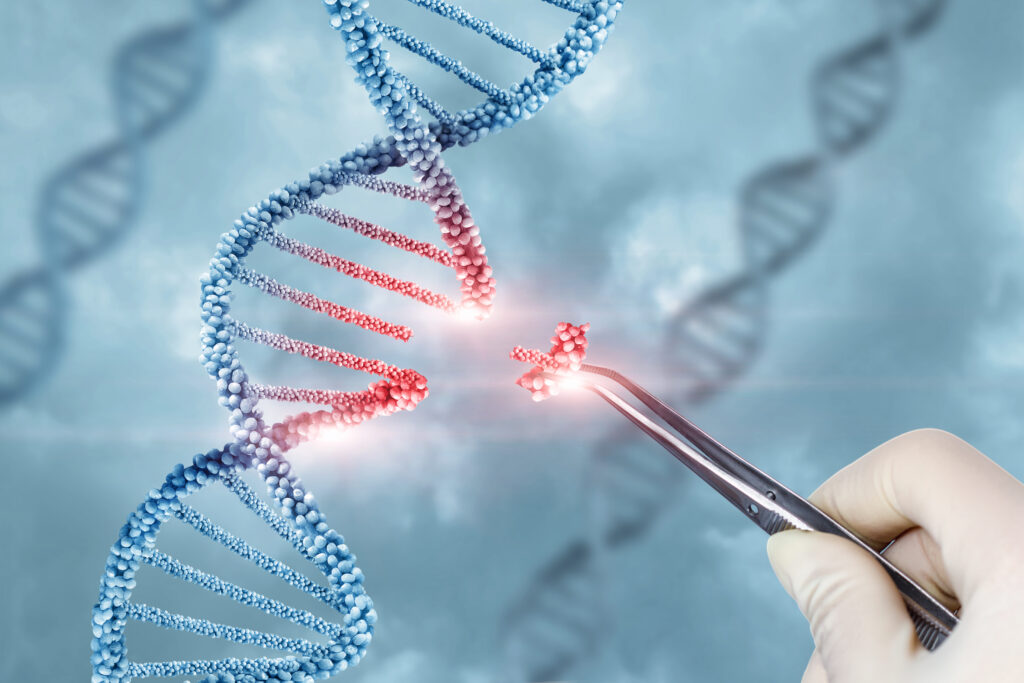Discover how cutting-edge science and surprising lifestyle changes are making extreme longevity a reality.

Imagine celebrating your 120th birthday with the same spark and energy you had at 50. Sounds like science fiction, doesn’t it? Yet, we’re living in an era where this wild dream may soon cross into reality. Cutting-edge research is uncovering astonishing new ways to push the boundaries of human lifespan far beyond what we once believed possible. What once seemed like nature’s unbreakable ceiling is now being nudged upward by breakthroughs happening every day.
And here’s the most exciting part—you don’t need to be a scientist, billionaire, or genetic prodigy to take advantage of these discoveries. Many of these advances are already shaping everyday life, and others may soon be available to everyone. Whether it’s through innovative treatments, lifestyle shifts, or mind-blowing technology, the potential to extend vibrant, healthy years is growing fast. Let’s take a closer look at 10 game-changing breakthroughs that could very well rewrite your personal future.
1. Scientists are unlocking the secrets to reversing aging at the cellular level.

Imagine your cells acting like they’re decades younger, even as the calendar moves forward. That’s what researchers are working toward as they explore the biology of cellular aging. Every day, our cells accumulate damage—from environmental toxins, metabolic waste, and simple wear and tear. But now, scientists are finding ways to repair this damage directly at the cellular level. Therapies are emerging that reset the biological clock of cells, rejuvenating tissues and organs that once inevitably wore down with age.
One promising avenue involves activating certain genes that control cellular repair, essentially teaching the body to heal itself, as reported by Rob Waugh at Daily Mail. Another focuses on senescent cells—the so-called “zombie cells” that stop functioning properly but refuse to die, causing inflammation and degeneration. New treatments aim to clear these out, reducing age-related decline. The result? Smoother skin, stronger muscles, better organ function, and a body that defies traditional aging—bringing the dream of living vibrantly past 100 closer than ever.
2. Gene editing could eliminate diseases that shorten your lifespan.

Picture a future where inherited diseases like cancer, Alzheimer’s, and heart conditions are no longer looming threats. That’s the vision behind revolutionary gene-editing technologies like CRISPR. These tools allow scientists to precisely cut, repair, or replace specific sections of your DNA—the biological blueprint that governs your health. By eliminating or correcting faulty genes before they cause harm, gene editing offers a proactive approach to lifelong wellness.
Already, clinical trials are demonstrating how gene editing can cure certain types of genetic blindness, sickle cell anemia, and even some cancers. But researchers believe this is just the beginning. As our understanding deepens, the possibility of preventing entire categories of age-related diseases is becoming very real, as stated by writers at Inside Tracker. Imagine living without fear of these devastating illnesses—free to enjoy your later years fully, without the shadow of inherited health risks.
3. Advanced AI is revolutionizing personalized health care.

The future of medicine is becoming deeply personal—literally tailored to your unique genetic code, lifestyle, and environment. Thanks to rapid advances in artificial intelligence, doctors can now analyze enormous amounts of personal health data to create highly customized prevention and treatment plans. Your blood work, sleep habits, exercise patterns, even your gut microbiome—all of it informs a dynamic health profile that guides decisions in real-time, says Mohana Ravindranath at The New York Times.
AI algorithms are already predicting heart attacks before symptoms appear, identifying cancer risks earlier than traditional tests, and fine-tuning medication dosages to fit individual metabolisms. As this technology continues to evolve, your health care may feel more like having a brilliant personal coach who knows exactly how to optimize every aspect of your well-being. The result is not just longer life, but a far healthier, more vibrant one.
4. Cutting-edge medicines are targeting aging itself, not just its symptoms.

For decades, medical treatments have mostly focused on managing the symptoms of aging—treating arthritis, high blood pressure, or diabetes after they appear. But a new generation of therapies is aiming straight at the root cause: aging itself. These emerging drugs, often called senolytics or geroprotectors, work by slowing or even reversing the biological mechanisms that drive aging from the inside out.
Clinical trials are already showing encouraging results, with some compounds extending the healthy lifespan of animals significantly. Human trials are underway, exploring how these drugs might delay or prevent frailty, cognitive decline, and organ failure. Imagine a future where reaching 90 doesn’t mean battling multiple chronic conditions, but rather enjoying full mobility, sharp thinking, and strong immunity. The promise of aging interventions is turning old age into a completely different chapter of life.
5. Regenerative medicine is repairing bodies from the inside out.

What if you didn’t have to rely solely on your body’s limited ability to heal? That’s the transformative promise of regenerative medicine. Scientists are now developing therapies that use your own cells—or lab-grown replacements—to regenerate damaged tissues and organs. Stem cell technology, for instance, holds the power to regrow cartilage, restore heart tissue after a heart attack, or even rejuvenate spinal injuries.
Tissue engineering goes even further, building replacement organs in the lab that could one day eliminate the need for organ transplants entirely. Instead of waiting for a donor, you might receive a perfectly matched organ grown from your own cells, dramatically reducing the risk of rejection. With regenerative medicine, the breakdowns of aging may become minor speed bumps rather than irreversible declines, allowing your body to stay resilient and strong as the decades roll on.
6. New dietary discoveries are rewriting the rules of longevity.

We’ve long known that diet plays a critical role in health, but now scientists are zeroing in on specific nutrients and eating patterns that influence how fast—or slow—you age. The Mediterranean diet, for example, rich in healthy fats, lean proteins, and antioxidant-packed fruits and vegetables, has been linked to longer lifespans and lower rates of chronic illness. But it’s not just about avoiding bad foods—it’s about actively feeding your body the compounds that nourish and protect your cells.
Emerging research on polyphenols, intermittent fasting, and gut microbiome diversity is also reshaping nutritional science. These discoveries suggest that tweaking your eating habits can strengthen immunity, reduce inflammation, and slow the aging process at a cellular level. You don’t need expensive superfoods or restrictive regimens; even small, consistent adjustments to your daily meals may yield profound longevity benefits.
7. Exercise is becoming smarter and more effective for aging bodies.

Exercise has always been a pillar of healthy aging, but now it’s being refined to meet the specific needs of older adults. Scientists are developing targeted exercise protocols that go beyond “move more.” These routines focus on preserving muscle mass, joint function, balance, and cardiovascular health well into later decades, with far less risk of injury or burnout.
High-tech fitness apps, wearable sensors, and real-time biomarker tracking make it possible to personalize workouts based on your current capabilities and goals. This precision allows you to get maximum benefits from each session while protecting your body from overuse or strain. The result is not just maintaining mobility, but enhancing vitality, preventing falls, and preserving independence for years longer than ever thought possible.
8. Longevity “vaccines” are on the horizon to prevent age-related diseases.

The next generation of vaccines may do far more than protect you from seasonal flu or childhood illnesses. Scientists are actively developing “longevity vaccines” that target the underlying causes of age-related diseases such as Alzheimer’s, cancer, and heart disease. These vaccines aim to prime the immune system to recognize and neutralize threats long before they develop into full-blown illnesses.
Early-stage research is already showing promise, with some experimental vaccines reducing the buildup of plaques associated with dementia or preventing cancer cells from establishing themselves. If successful, these preventive treatments could dramatically shift how we think about aging—transforming it from a period of inevitable decline into one of continued vitality, with far fewer medical interventions needed in later life.
9. Mind-body medicine is proving that stress management is key to long life.

While science races ahead, some of the most powerful longevity tools remain profoundly simple—like calming your mind. Chronic stress floods the body with damaging hormones that accelerate cellular aging, weaken immunity, and contribute to chronic illness. But new studies are revealing how practices like meditation, mindfulness, and breathwork can directly counteract these effects and preserve health.
By lowering inflammation, balancing hormones, and supporting neurological health, regular mind-body practices help protect against cognitive decline, heart disease, and depression. And unlike medical interventions, these tools are completely accessible, requiring no prescription—just commitment. The growing body of evidence shows that managing your emotional well-being isn’t just about feeling good—it’s a direct investment in living longer, better.
10. Scientists are learning how to mimic the benefits of fasting without skipping meals.

Fasting has been linked to impressive longevity benefits, from improved metabolic health to enhanced cellular repair. However, long fasts can be difficult and unsustainable for many people. That’s why researchers are developing therapies that replicate fasting’s cellular benefits without requiring strict calorie restriction or extended fasting periods.
These so-called “fasting mimetics” work by triggering the same molecular pathways that fasting activates—promoting autophagy (the cleanup of damaged cells), improving insulin sensitivity, and boosting mitochondrial function—all while allowing people to maintain their regular eating patterns. In the near future, you may be able to enjoy the life-extending advantages of fasting while still savoring your favorite meals, combining longevity science with daily pleasure in a way that makes long life feel not just possible, but enjoyable.
